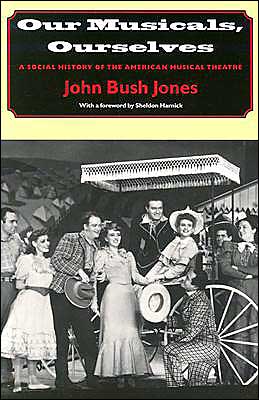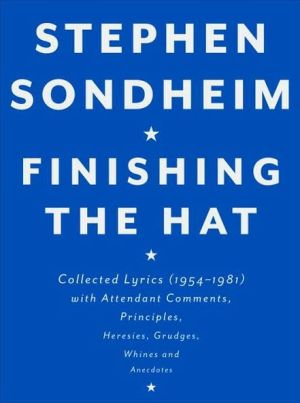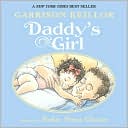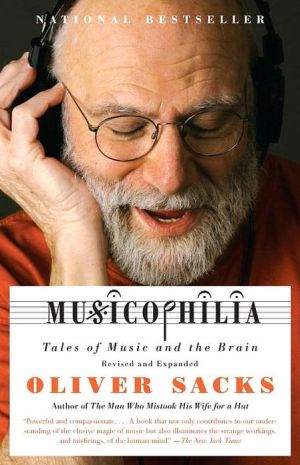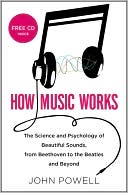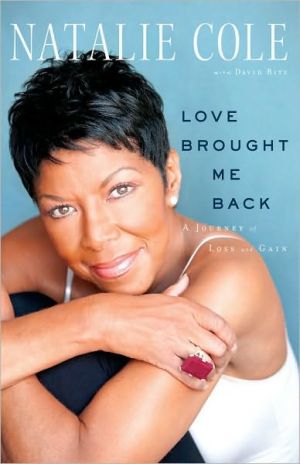Our Musicals, Ourselves: A Social History of the American Musical Theatre
Our Musicals, Ourselves is the first full-scale social history of the American musical theatre from the imported Gilbert and Sullivan comic operas of the late nineteenth century to such recent musicals as The Producers and Urinetown. While many aficionados of the Broadway musical associate the genre only with diversionary shows like The Music Man or My Fair Lady, John Bush Jones singles out musicals for their social relevance. He is interested in how they engage, directly or metaphorically,...
Search in google:
The first comprehensive social history of the American musical theater. Library Journal In this close examination of the 20-century American musical, Jones (theater arts, retired, Brandeis Univ.) looks beyond the entertainment factor to present musicals "as theatrical vehicles that intended to transform, not just report, the tenor of the times." To that end, he has restricted his selection "to musicals that seem to have been consciously intended to have contemporary social relevance"-thus including West Side Story but not My Fair Lady. The result is a work that while not comprehensive-for that, look to Gerald Bordman's American Musical Theatre: A Chronicle-is rich in social history not found anywhere else. From the patriotism and xenophobia of the late 1890s, to the influences of Rogers and Hammerstein, to the "technomusicals" and "theme-park mentality" spectacles of the 1980s and 1990s and today's new voices, Jones presents American society as mirrored by the musical stage. Whether discovering a new show or exploring one you thought you knew well, you are sure to find Jones's insight both informative and thought-provoking. Highly recommended for all theater arts collections.-Laura Anne Ewald, Murray State Univ. Lib., KY Copyright 2003 Reed Business Information.
Our Musicals, Ourselves excavates cultural information from dozens of shows, first-run and revivals, serious and frivolous, over the course of the twentieth century. Jones, interpreting these shows through a historical lens, enables us to see them with new eyes. More importantly he teaches us to see them not simply as vehicles of transient pleasure but as social documents that help to tell us who we were and who we are-as individuals, as members of a community, as citizens of a nation."-From the Foreword
ForewordAcknowledgmentsIntroduction11Patriotism, Xenophobia, and World War I122The Musicals of the Roaring Twenties523Coping with Depression794World War II and the Rodgers and Hammerstein Years1235From Isolationism to Idealism in the Cold War Years1616Black and Jewish Musicals since the 1960s2027Issue-Driven Musicals of the Turbulent Years2358Fragmented Society, Fragmented Musicals2699"A Recyled Culture," Nostalgia, and Spectacle30510New Voices, New Perspectives331App. ABroadway Musical Production, 1919-1929360App. BLong-Running Diversionary Musicals, 1929-1938362App. CLong-Running Diversionary Musicals, 1939-1945364App. DLong-Running Diversionary Musicals, 1946-1960366App. ELong-Running Diversionary Musicals, 1960-1969369App. FLong-Running Diversionary Musicals, 1969-1979371App. GLong-Running Diversionary Musicals, 1979-2000372Sources Cited375Index391
\ Library JournalIn this close examination of the 20-century American musical, Jones (theater arts, retired, Brandeis Univ.) looks beyond the entertainment factor to present musicals "as theatrical vehicles that intended to transform, not just report, the tenor of the times." To that end, he has restricted his selection "to musicals that seem to have been consciously intended to have contemporary social relevance"-thus including West Side Story but not My Fair Lady. The result is a work that while not comprehensive-for that, look to Gerald Bordman's American Musical Theatre: A Chronicle-is rich in social history not found anywhere else. From the patriotism and xenophobia of the late 1890s, to the influences of Rogers and Hammerstein, to the "technomusicals" and "theme-park mentality" spectacles of the 1980s and 1990s and today's new voices, Jones presents American society as mirrored by the musical stage. Whether discovering a new show or exploring one you thought you knew well, you are sure to find Jones's insight both informative and thought-provoking. Highly recommended for all theater arts collections.-Laura Anne Ewald, Murray State Univ. Lib., KY Copyright 2003 Reed Business Information.\ \ \ \ \ From the Publisher"The strength of this sweeping thesis is its scope. It seeks to demonstrate and analyze how Broadway and Off-Broadway have held up a mirror to political and social currents in American society at large. But the fun comes from showing how events and trends in widely separated decades all sprang from similar currents of thought. By looking at the entire continuum of musicals as a single ongoing dialog between Broadway and America, the book serves up fresh insights and eyebrow-raising parallels on each page. It starts in the 19th century and runs right up 2001's Urinetown, from which it concludes that the political musical remains alive and well."--Playbill\ "Our Musical, Ourselves . . . may foreshadow a new era in the study of the musical . . . [an] accessible read . . . [a] must read for the musical theatre scholar... a text that finally fills the void of a needed comprehensive history of the musical that, more importantly, places each musical squarely in the context of the time in which it was created."--Theatre History Studies\ "[A]n overview of the American musical for the entire twentieth century . . . a strength of the book, in addition to the author's obvious enthusiasm for his subject matter, is that it has something to say about dozens of shows not even mentioned by [other] authors."--Kurt Weill Newsletter\ "The very fact that [Our Musicals, Ourselves] looks at potential interfaces between social and political developments and the Broadway musical is laudable . . . The study's expansive scope, its attempts at connecting historical narrative with a narrative of genre evolution, as well as Jones's near encyclopedic knowledge of social and political themes in Broadway productions provide an excellent starting point for further analysis of specific periods, sub-genres, and issues in American musical theater."--American Studies\ \ \
